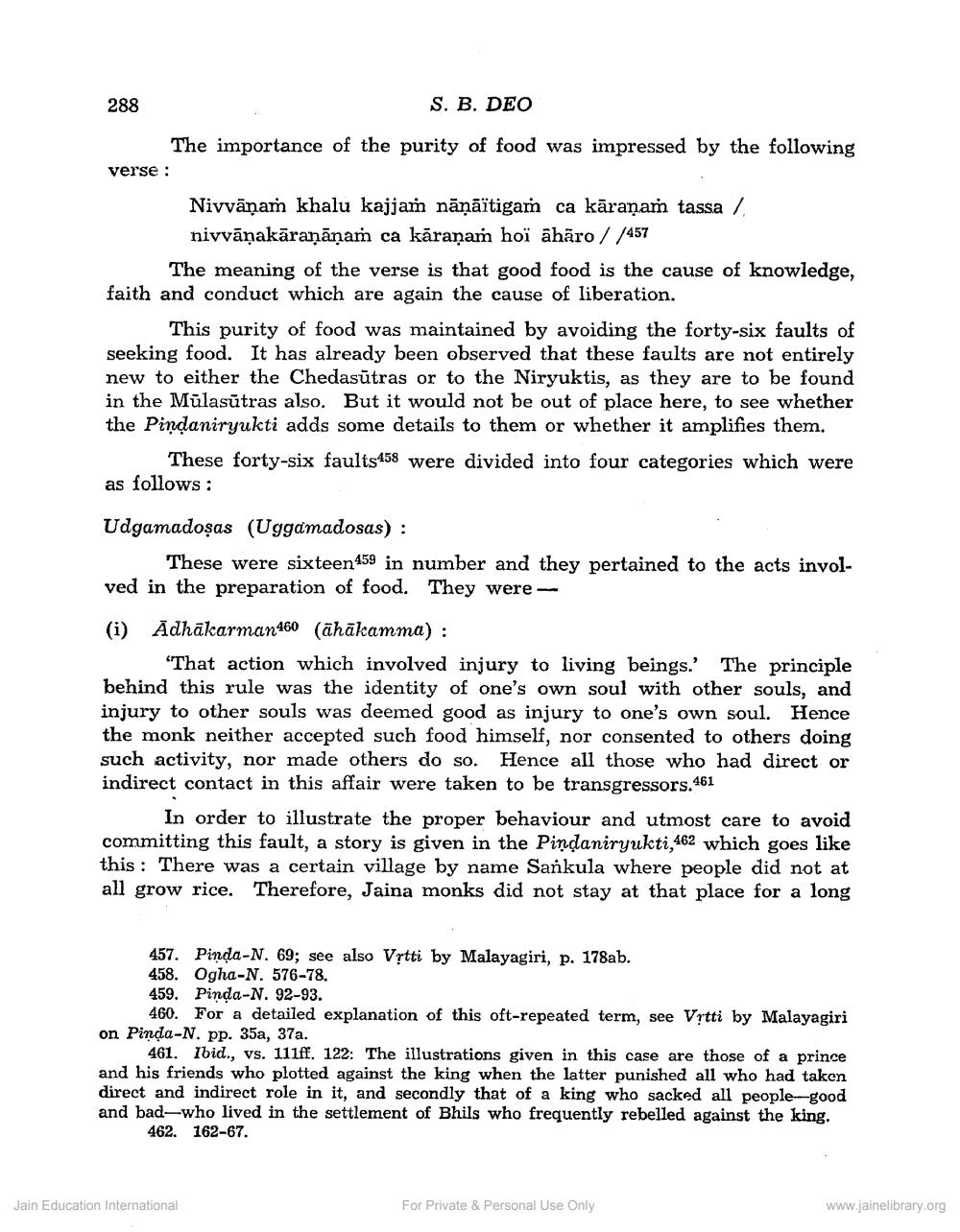________________
288
S. B. DEO
The importance of the purity of food was impressed by the following verse:
Nivväņam khalu kajjam nāņāïtigam ca kāranam tassa /
niyvāņakāraṇānam ca kāraṇam hoï āhāro //457
The meaning of the verse is that good food is the cause of knowledge, faith and conduct which are again the cause of liberation.
This purity of food was maintained by avoiding the forty-six faults of seeking food. It has already been observed that these faults are not entirely new to either the Chedasūtras or to the Niryuktis, as they are to be found in the Mülasūtras also. But it would not be out of place here, to see whether the Pindaniryukti adds some details to them or whether it amplifies them.
These forty-six faults458 were divided into four categories which were as follows:
Udgamadosas (Uggamadosas) :
These were sixteen 459 in number and they pertained to the acts involved in the preparation of food. They were
(i) Adhākarman460 (āhākamma):
"That action which involved injury to living beings. The principle behind this rule was the identity of one's own soul with other souls, and injury to other souls was deemed good as injury to one's own soul. Hence the monk neither accepted such food himself, nor consented to others doing such activity, nor made others do so. Hence all those who had direct or indirect contact in this affair were taken to be transgressors.461
In order to illustrate the proper behaviour and utmost care to avoid committing this fault, a story is given in the Pindaniryukti,462 which goes like this : There was a certain village by name Sankula where people did not at all grow rice. Therefore, Jaina monks did not stay at that place for a long
457. Pinda-N. 69; see also Vrtti by Malayagiri, p. 178ab. 458. Ogha-N. 576-78. 459. Pinda-N. 92-93.
460. For a detailed explanation of this oft-repeated term, see Vitti by Malayagiri on Pinda-N. pp. 35a, 37a.
461. Ibid., vs. 111ff. 122: The illustrations given in this case are those of a prince and his friends who plotted against the king when the latter punished all who had taken direct and indirect role in it, and secondly that of a king who sacked all people-good and bad—who lived in the settlement of Bhils who frequently rebelled against the king.
462. 162-67.
Jain Education International
For Private & Personal Use Only
www.jainelibrary.org




